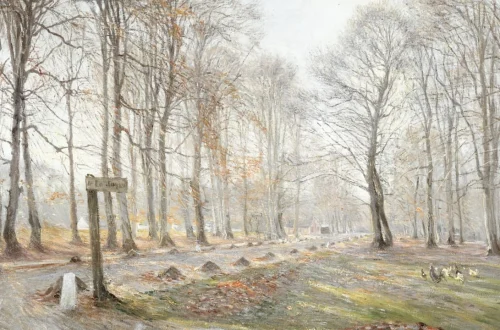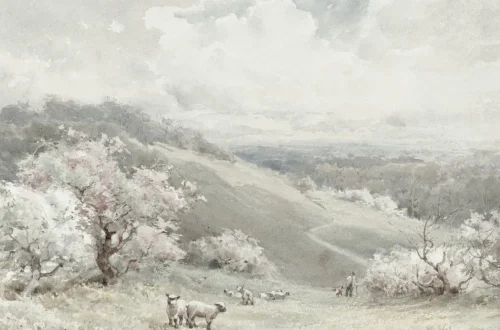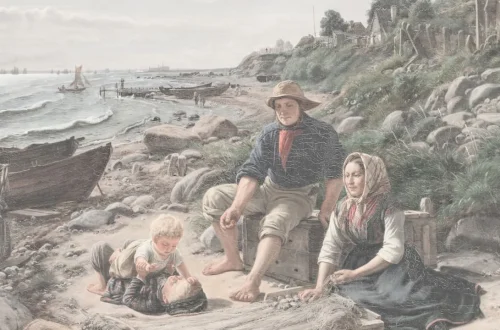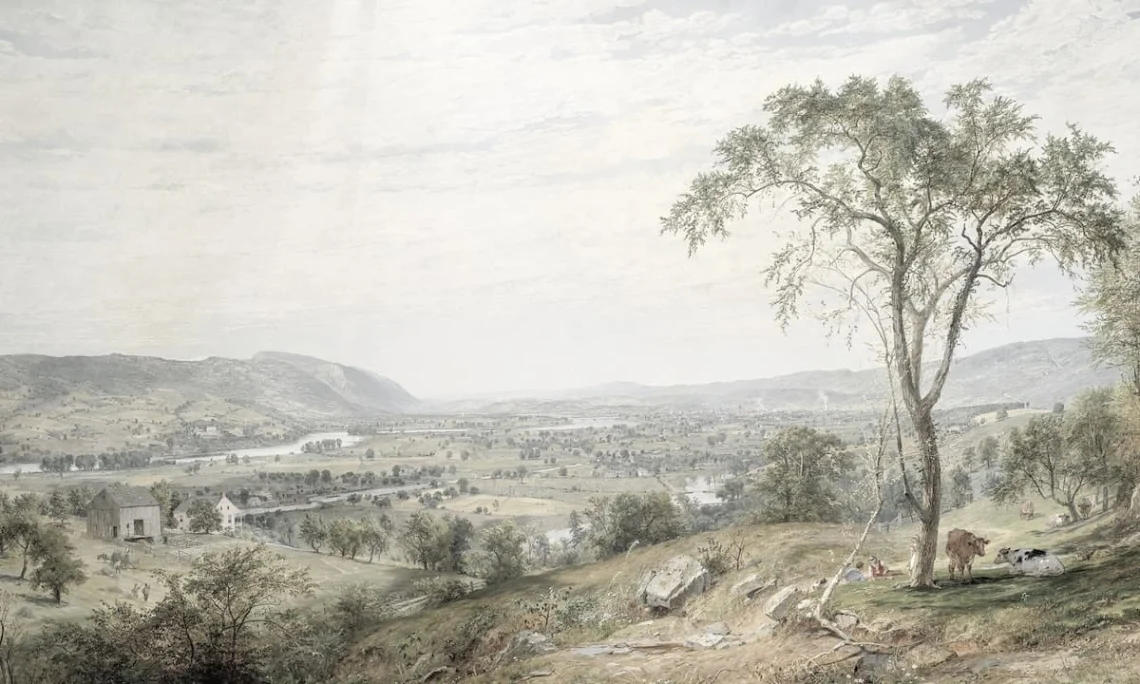
How Nature Speaks of God’s Power and Care for Us
It’s hard to explain, but sometimes just stepping outside feels like exhaling after holding your breath all day. I’ve had moments—ordinary ones, like standing under the night sky or watching the wind stir the trees of the forest—where something deeper stirs. There’s a kind of quiet whisper in creation, something the Word of God describes as the work of His hands (Psalm 19:1). It reminds us that we are not alone, and more than that—we are deeply cared for by the Lord God who shaped it all.
Nature, in its vastness and detail, reflects the invisible attributes of our Heavenly Father. The birds of the sky, the fish of the sea, the gentle rhythm of stormy winds, all declare His order, His eternal power, and yes, His kindness. When Jesus said we were worth more than many sparrows, I think He meant for us to notice them. To remember. To be comforted by the simplicity and beauty of creation.
In seasons of stress or spiritual dryness, walking among the seed-bearing plants or simply sitting under a tree has helped me reconnect. Not just with myself—but with the Spirit of God. There’s healing in the stillness, in the ordinary beauty, in the wondrous works that tell of a Great God. Maybe creation waits not just for redemption, but also for us to pause long enough to listen.
The Biblical Foundation of Nature’s Role
From the beginning God spoke, and the dry land, seed-bearing plants, and the tree of life came into being—not by human hands, but by the work of His fingers (Psalm 8:3). The natural world was never meant to be silent. It testifies. Not with words, but through beauty, rhythm, and design. The life of every creature, the order of the moon, the hum of creeping things, even the fragrance of an olive tree—these whisper of the invisible qualities of our Sovereign Lord.
Short Bible verses like Romans 1:20 point out that God’s character—His eternal power and divine nature—has been clearly seen in what He made. It’s a kind of good news, if we stop to notice it. We, as those made in His own image, were not only given dominion but stewardship. To care for the land that produces vegetation and to respect the breath of all mankind as sacred. It’s more than creation care—it’s worship.
And perhaps it’s in these quiet places, these natural sanctuaries, that the Holy Spirit gently reminds us: we are part of something vast, beloved, and eternal. The present time may feel fractured, but nature remains a stable witness to the Word of our God.
Nature as a Reflection of God’s Power
There’s something humbling about mountains. I remember standing once at the base of a peak in Patagonia—just still, almost undone by the sheer weight of it all. It made me think of Psalm 95:4–5, where it says, “In His hand are the depths of the earth, and the mountain peaks belong to Him.” It’s not poetic fluff. It’s truth. A reminder that the hand of the Lord holds all things.
The great power of God is visible not just in massive landscapes, but in subtle forces too. The fixed order of the moon, the stormy winds, even the way the trees of the forest sing (Psalm 96:12). These aren’t just metaphors—they are signals. Clues. That the Lord of Heaven, the Great King, is not distant. He reigns.
Scripture is rich with stories where nature bows to God’s authority. The Red Sea parts. A storm ceases at the voice of Jesus Christ. The sun stands still. These are not myths, but moments that unveil His sovereignty. Even the middle of the garden was a meeting place with the Living God.
Creation doesn’t just reflect God’s majesty—it also exposes our little faith. And maybe that’s a grace. Because in the face of grandeur, we’re invited again to trust. To believe. To worship.
God’s Care in the Small Details of Creation
Even the smallest corners of creation carry the unmistakable mark of the Lord God’s care. When Jesus pointed to the birds of the air—those fragile, restless creatures without storage or strategy—He reminded us that they are fed by the Heavenly Father (Matthew 6:26). It’s a quiet truth that sinks in slowly. I once sat on a bench just after sunrise, watching a pair of sparrows search the grass for crumbs. No urgency, no worry—just trust. And in that still moment, I felt it clearly: if God provides for them, how much more will He care for us?
Look at the flowers of the field, the lilies, the wild blooms growing along a roadside. Their beauty isn’t loud or staged, but it’s intentional—crafted by the work of His hands. Even the fig tree teaches, bearing fruit in its time, quietly obeying the rhythm God has built into creation. There’s a kind of wonder of God in it all—a reminder that every creeping thing, every shoot of vegetation, every bit of good fruit carries His signature.
In these small details, we see how the life of every living thing is held in His care. Not by accident or automation, but by design. The foundation of the earth rests on the glorious splendor of His majesty, and even the heights of the mountains sing of His provision. What a comfort, to be part of such a carefully tended world.
Lessons from the Garden of Eden
The creation of the world began not with chaos, but with order—and at its heart, a garden. Eden wasn’t just beautiful. It was purposeful. The Garden of Eden was the first sanctuary, filled with seed-bearing plants, flowing rivers, and the tree of life, all meant to show us something of God’s deep desire to dwell with us.
When I think about Eden, I imagine quiet mornings where the image of God—man and woman—walked in the presence of God without shame or striving. The harmony wasn’t just in the landscape but in the relationship: human to creation, human to human, and human to Creator. That peace was never meant to be lost, only remembered, even as we live outside the gates.
We learn stewardship from Eden. Not dominance, but care. We’re called to tend what God has made—to cultivate the land, to receive from it with gratitude, and to recognize that our labor is an extension of the work of His fingers. It’s a strange comfort, knowing that the same Son of Man who walked in the cool of Eden now meets us in our gardens, our kitchens, our human hearts. Eden may feel far away, but its lessons still live on in every act of simple faith and care.
The Ocean’s Majesty and the Wonder of God
Few things stir the soul quite like the ocean. Its vastness, its rhythm, the way it seems to breathe—there’s a quiet power in it that humbles you. When I stand near the water’s edge, watching waves roll in one after another, I often feel small—but not forgotten. More like seen, held within something far greater than myself. The vastness of the deep waters, the mystery of what lies beneath, reminds us of the glorious splendor of God’s majesty. The great sea creatures—so powerful, so beyond our reach—are part of the work of His hands, a living display of divine creativity.
The Psalms say, “There is the sea, vast and spacious, teeming with creatures beyond number…” and in that teeming life, in the roar and the hush of the tide, we glimpse God’s presence. The ocean doesn’t just speak of scale—it speaks of depth. It reflects the human heart in some ways: full of wonder, mystery, and longing. Maybe that’s why Jesus walked on water—to remind us that even the deepest places answer to Him.
The Temporary Nature of Creation and Eternal Truths
Nature is stunning, but fleeting. A flower blooms and fades. The land produces vegetation, and then it withers. In a world that changes constantly, these rhythms speak to our longing for something unchanging. As the Old Testament affirms and the New Testament echoes, the beauty around us is a pointer—not the point.
Jesus, in Matthew 6, told us not to worry about tomorrow. The work of God’s fingers in lilies and sparrows is enough for today. And yet, He promised more. The Bible teaches that in the last days, we await a new heaven and new earth, a place where death no longer reigns. Nature’s brevity doesn’t mean it lacks meaning. Rather, it hints at something more lasting. Something rooted not in human nature but in the eternal truth of Christ Jesus.
In this, we find hope: that the fading grass and shifting skies are just the beginning. That what is beautiful now is a whisper of the glory to come.
The Role of Animals in God’s Creation
From the wild fox darting through the underbrush to the birds of the heavens gliding overhead, animals remind us that we are not the only recipients of God’s care. The work of His fingers includes every living thing. Watching how they find food without worry or plan—how the bushes of the earth house insects, how creatures find shade beneath trees—it all speaks to a divine order far beyond our control.
There’s a rhythm in nature, a mutual dependence that models trust. I once watched a bird gather twigs for its nest on a windy morning. It wasn’t panicked. It wasn’t rushed. It simply did what it was made to do. That moment taught me more than a sermon ever could: O Lord, if You care for the sparrows, surely You care for me.
Nature, in all its wildness, becomes a teacher. It doesn’t strive, and yet it thrives. In a way, the animal kingdom invites us to surrender our grasp on control and live with a bit more faith. A bit more wonder.
Trees, Plants, and God’s Provision
Scripture paints trees not just as scenery, but as sacred symbols. The trees of the field clap their hands in praise. The tree of life stood in Eden. Even Christ Jesus was crucified on wood. Trees remind us that God’s provision is both ancient and ongoing.
Flowers of the field—fragile and brief—still catch the attention of the Lord of Heaven. They neither toil nor spin, and yet Solomon, in all his glory, wasn’t clothed like one of them. That image stays with me when I feel like I must earn everything. God provides, not because we’re impressive, but because He is good.
And fruit trees? They’re not only nourishment for the body but mirrors of spiritual truths. A healthy tree bears good fruit. A rooted heart produces peace. The earth, as it produces vegetation, echoes God’s original intent: to sustain, to teach, to bless.
Spending Time in Nature as Worship
It doesn’t take a church pew to encounter the glorious splendor of His majesty. Sometimes, it only takes a quiet walk under rustling leaves. When I wander through a forest path or stand still near a stream, my soul breathes differently. The noise fades, and the presence of God becomes startlingly near.
Nature is a kind of cathedral. The beauty of nature lifts our gaze upward, beyond the present time and its worries. Even the mere mortals we are can sense the eternal when the wind brushes through the trees.
Lately, I’ve begun treating my walks as bible study in motion. I’ll whisper prayers, reflect on following Bible verses, or simply listen. Birds sing like hymns, and trees sway like praise dancers. It’s not structured, and it’s rarely perfect, but it’s real. And sometimes, that’s the worship God desires most.
When life feels heavy and peace seems far away, you don’t have to carry it alone. My guide, Biblical Stress Management: How to Find God’s Peace in Overwhelming Times, will help you quiet anxious thoughts, rest in His presence, and rediscover calm through faith.
Nature’s Role in Declaring the Glory of God
You don’t have to look far to see the glory of God stitched into the world around you. It’s in the soft light of morning, the thunder that shakes the sky, the trees lifting their branches like arms in praise. Scripture reminds us again and again that creation itself is a witness—“The heavens declare the glory of God; the skies proclaim the work of his hands” (Psalm 19:1). Even the wild animals, the stars, and the great creatures of the sea participate in this quiet chorus of worship.
There’s a scene in the Psalms where the mountains skip like rams and rivers clap their hands. It sounds poetic, even fanciful—but I think it’s more than that. It’s the soul of creation reflecting the glorious splendor of God’s majesty. Everything He made, from the work of His fingers to the far reaches of the highest heavens, speaks of who He is.
When we pause long enough to notice, we’re drawn into this testimony. A simple breeze becomes a part of God’s language, reminding us of His nearness. And in those moments, praise becomes less about words and more about awe.
Trusting God Through Nature’s Cycles
The older I get, the more I pay attention to the seasons—not just the weather, but the way life itself seems to rise and rest in rhythms I can’t control. The grass of the field fades, only to grow again. The land produces vegetation, just as God commanded from the very beginning. There’s wisdom in that. A slow, steady trust in the unseen hand guiding it all.
Nature doesn’t panic when winter comes. It simply rests. And in due time, spring returns. It reminds me not to fear when my own life feels quiet or fruitless. There’s a time for harvest and a time for stillness, and both are under God’s care.
This rhythm—this cycle—is more than routine. It’s a divine invitation to let go of striving. Jesus spoke of it, too, reminding us in Matthew 6 not to worry, for even the lilies and birds are cared for. In this present world full of hurry and enough trouble of its own, the changing of the seasons speaks of a Sovereign God—faithful and unchanging.
Sometimes, trusting God is as simple as watching the leaves fall and knowing He holds tomorrow.
The Healing Power of Nature for Human Beings
There’s something about stepping outside that calms the racing thoughts. The wind brushing against your skin, the sun warming your face, even the quiet hum of insects—all of it feels like a whisper from the Lord, a gentle nudge back to stillness. In hard seasons, I’ve often gone walking just to breathe. Not to fix anything, just to feel held by something steady.
God’s creation is not just beautiful—it’s restorative. It reaches the anxious mind and the weary body with quiet reassurance. Even in the natural forces—a storm rolling in or the rustle of trees—there’s peace. A reminder that God is near, even in chaos.
Spending time outdoors doesn’t have to be complicated. A walk around the block. Sitting near a tree. Gardening. Listening to birds while you wash dishes. These moments can become pockets of peace and prayer. His work of your fingers—from the smallest flower to the grandest sky—is often exactly what a weary soul needs.
New Heavens and the Eternal Promise
The Bible speaks of a coming renewal—a time when the whole earth will be made new. This isn’t a far-off idea meant only for theologians. It’s a promise that touches our everyday lives. The ache we feel for things to be made right? That longing is echoed in Scripture. In the Song of Songs, and the New Testament, we see glimpses of what’s to come: beauty unmarred, peace uninterrupted.
Creation itself, the Bible says, is groaning, waiting. And yet, there is hope. God is not finished with this world. The work of His hands will be restored. The mountains, the oceans, the land that produces vegetation—all will reflect His original intent again.
This promise doesn’t just offer comfort. It also calls us to care. To treat nature not as a resource to be used up, but as a sacred trust. A part of God’s heart extended into tangible form. When we care for creation, we participate in His redemptive plan.
Seeing God’s Hand in Nature
The beauty of the world is more than decoration—it’s a declaration. The wind, the sky, the soil beneath our feet… all of it points to a Maker whose fingerprints cover every inch. In the ordinary rhythms of nature, we’re invited to witness the glorious splendor of His majesty.
You don’t have to go far. Just look closely. The curve of a leaf, the quiet buzz of a bee, the way light filters through morning mist—each detail speaks of care. Of intention. Of a God who is still near. Still tending. Still creating.
If you’re overwhelmed, start here. Step outside. Breathe in the goodness of His world. Let the great things He has made remind you that you’re not forgotten, not alone. The same God who shapes stars and sea also watches over you.
PIN ME FOR LATER!
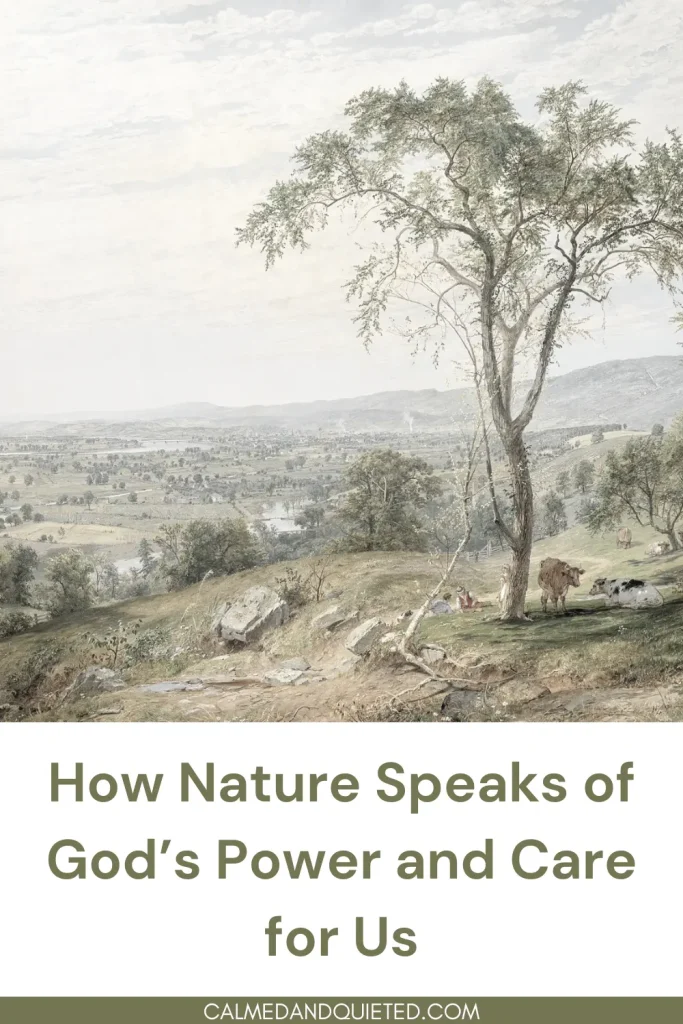
What’s one part of nature that draws your heart toward God? I’d love to hear your reflections in the comments below.


